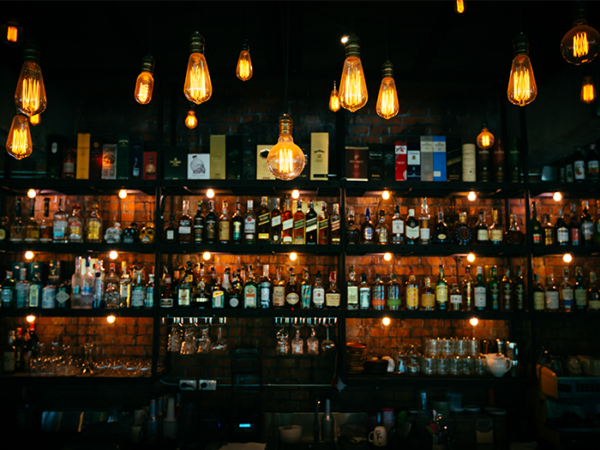
The Covid-19 pandemic is poised to transform the ways in which beverage companies activate and communicate their brands, with a shift away from the on-trade and towards retail and, in particular, ecommerce and social media.
“The key questions brand owners will be asking themselves as they create their medium- and long-term plans are: what will be the impact of Covid-19 on (a) longer-term trends around premiumisation, environmental concerns, moderation and increased trade tensions between major markets – to name a few – and (b) on beverage alcohol consumption across the globe?” says Mark Meek, CEO of the IWSR. Meek adds: “The one-, three- and five-year plans that brand owners put together in the autumn of 2019 will now seem mostly irrelevant in our new world and, as such, will now need to be reassessed in light of how consumer behaviours are changing due to the pandemic.”
“As companies revisit their brand strategies, the on-premise will continue to play a key role. However, the balance between the importance of the on-premise in relation to the off-premise and ecommerce channels will become a lot more nuanced in the coming years,” notes Meek.
Brand owners understand this importance, and venues that are re-opening can access a great deal of strategic support and resources from brand owners. Diageo’s ‘Raising the Bar’ programme, for example, will provide US$100 million to support the recovery of major hospitality centres worldwide.
Pernod Ricard UK has produced a guidebook – “Back to Work in the New Normal” – to help UK venues to re-open safely, and its Pernod Ricard Rouss subsidiary has compiled a series of video interviews with key on-trade venue owners under the banner “Changes are norm”. A company spokesperson highlights Pernod’s decentralised organisational model as vital to finding local responses to individual market conditions.
Bacardí’s mantra throughout the pandemic, says Heidi Vargas, Vice President and Managing Director, On Premise at Bacardí North America, has been simple: “1. Survive; 2. Reopen; 3. Rebuild.” The company has compiled a programme of support, research and resources to help venues to reopen safely and sustainably. “The on-premise will always be a priority for Bacardí,” adds Vargas. “Gains in stores and ecomm don’t make up for losses in the bar, restaurant [and] travel industries.”
The long-term consequences of the short-term transformation of trading patterns brought on by the pandemic are, however, beginning to be felt. In a call with analysts on 9th June 2020, Brown-Forman Corporation CEO Lawson Whiting said that the company was “reallocating dollars” away from the on-premise and into “broad-based media”, adding: “That is a brand-building change happening there.”
On 1st July 2020, Constellation Brands announced that it will acquire direct-to-consumer wine company Empathy Wines, co-founded by entrepreneur Gary Vaynerchuk. Bill Newlands, president and chief executive officer, Constellation Brands, remarks that the acquisition will help the company deliver growth and shareholder value, while also accelerating its ability to forge deeper connections with its consumers. The acquisition will also provide Constellation Brands with access to rich consumer insights and analytics.
Italy’s Campari Group has also recognised the growing power of ecommerce – and the channel’s fast growth off a small base in the domestic Italian market – with the acquisition of a 49% stake in the wine and premium spirits ecommerce platform Tannico for €23.4m; the company also has an option to buy the business outright from 2025.
Campari was attracted by Tannico’s 30%-plus market share in Italy, as well as its expansion into B2B and into overseas markets such as the US, UK, Germany and France. “By leveraging Tannico’s expertise, we will accelerate our development plans in ecommerce, an already growing channel, set to become even more strategic following the likely long-lasting change in consumer behaviours due to the Covid-19 emergency,” says Campari Group CEO Bob Kunze-Concewitz.
Such actions reflect a seismic shift in companies’ attitudes to digital activities. Until now, many brand owners viewed online storefronts primarily as an extension of their marketing departments. But they now recognise a far greater opportunity to build stronger relationships with consumers and drive purchases, as well as being able to access valuable data on who their consumers are, what they are buying, and how they are buying it.
Some brand owners have been surprised by the surge in online sales since the onset of the pandemic – but are now adapting their strategies to further exploit the channel. For instance, Hine Cognac’s Amazon listings in the UK and Germany enabled the brand to increase its depletions in both markets during May 2020.
“This is something totally new to us,” says Hine Sales Director Thibaut Delrieu. “In the past, we were doing nothing special for online, but now we are looking to perform even better.” As well as Amazon, the brand has recently started working with Tmall in China and Reserve Bar in the US, and Delrieu reckons that non-organic sales growth – through online sales and distribution gains in Europe and the Caribbean – could entirely offset Hine’s projected 20% revenue decline for 2020 as a whole.
According to Vargas, 40% of online spirits buyers in the US are new to the process, exposing “a whole other audience” to ecommerce. “I think we will find more people discovering our products online, and we’ll continue to innovate in that space more and more,” she adds.
The closure of most of the global on-trade left brand owners that were planning NPD with a stark choice: postpone their launches until late 2020 or beyond, or get on with it and make the best of the resources available. Campari chose the latter approach for the global relaunch of its Appleton Estate Jamaica Rum brand earlier this year: “We had master distiller Joy Spence slated to visit over 10 markets to conduct press and masterclasses in our top markets,” explains Julka Villa, MD, Global Strategic Marketing, Campari Group. “Of course, we are pivoting to digital platforms to conduct these types of Q&A and more personal moments, which has been a great opportunity for us to learn how to be nimble, more digitally savvy and creative. To this end, we’re developing more dynamic digital and social assets for our global markets to deploy locally.”
This change of approach is one that translates across the brand spectrum, from multinationals to small-scale local launches. Premium rum brand Mainbrace was launched in the UK in October 2019, aimed at high-end bars and pubs in the Cornwall area. “With the on-trade market completely closed, we have had to rethink our entire sales strategy,” says brand manager Liam Jones.
The result has been an Instagram push to support distributors; social media quizzes and giveaways; and tie-ins with fellow small local brands, including handcrafted chocolate brand Río Nuevo and Cornish mixer-maker Navas, to support each other through the crisis.
The new balance between the on-premise, off-premise and ecommerce channels will force brand owners to think more creatively about their product strategies and how they diversify their sales channels. The brands that relied primarily on the on-trade and travel retail channel to drive brand visibility and consumer uptake in the past were often considered the more innovative and successful brands. “We could even see a role reversal in terms of which brands and companies are successful in the new world we find ourselves in,” comments Meek. “The more staid off-premise-focused brands and companies might be the ones that do well, at least in the short to medium term. Greater visibility and marketing in the off-trade and ecommerce, versus in the on-trade, could shake up which brands are considered successful and also in many cases leaders in innovation.”
You may also be interested in reading:
Easing out of lockdown: the consumer at the forefront
Why will beer prove resilient in the aftermath of Covid-19?
Will the night trade adapt as the on-premise reopens?
Category
Market
- Beer
- Brandy
- Cider
- Gin
- Irish Whiskey
- Low-/No-Alcohol
- Mixed Drinks
- RTDs
- Rum
- Scotch
- Spirits
- Tequila
- US Whiskey
- Vodka
- Whisky
- Wine


